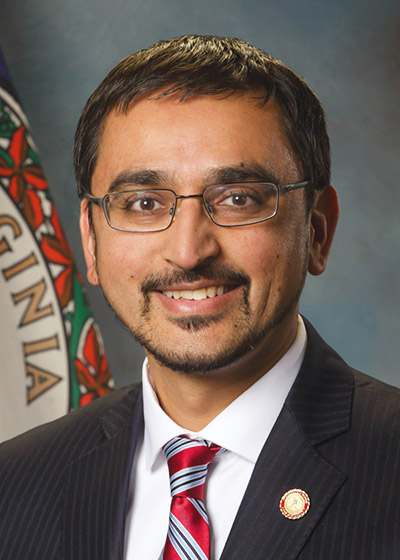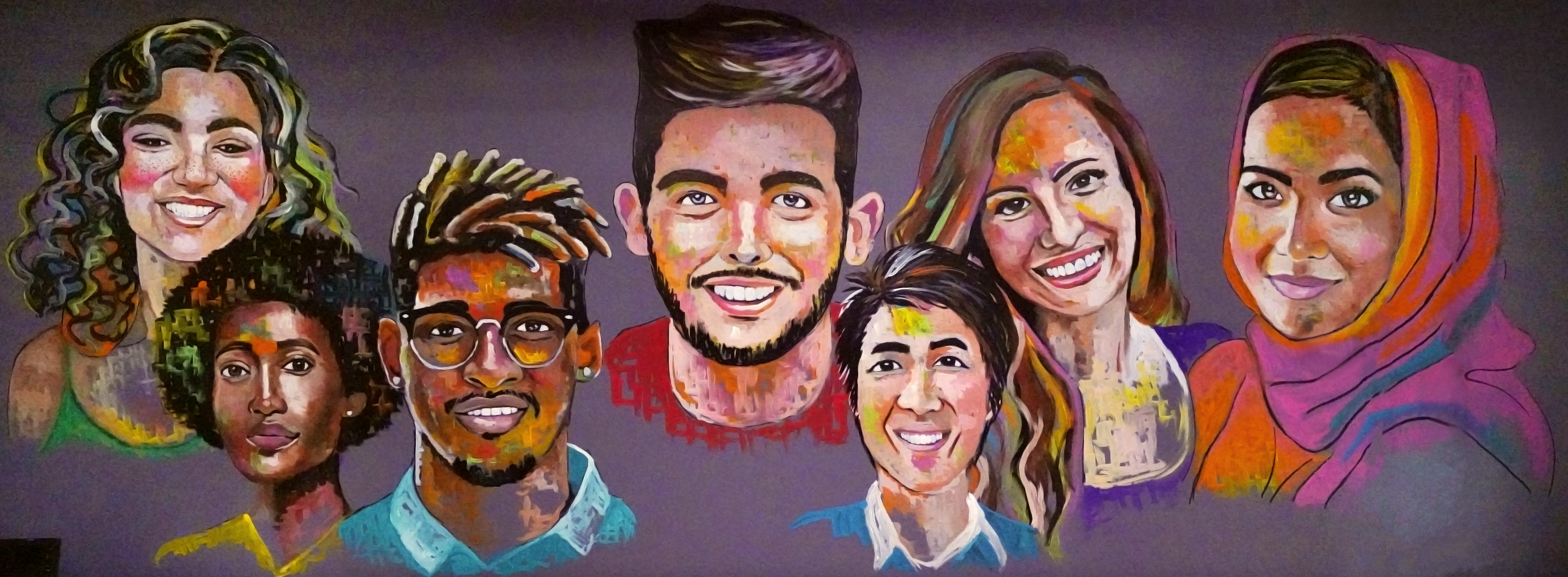
Atif M. Qarni is the Managing Director of External Affairs at the Hope Center for College, Community, and Justice. Before joining the Hope Center, Atif Qarni served for four years as Virginia’s Secretary of Education, championing K-12 and higher education reforms at the state level, through the legislative and policy-making process. His progressive #RealCollege agenda in Virginia led to many successes, including tuition-free community college with basic needs stipend; in-state tuition rates and state financial aid for undocumented students; historic increase in need-based financial aid; and record investments in public Historically Black Colleges and Universities (HBCUs), to include launching Virginia College Affordability Network (VCAN)—an initiative to provide Pell-eligible students with a debt-free path to their degree while attending public HBCUs.
During the pandemic, Atif led the COVID-19 Education Response and Recovery Task Force for the PK-20 education continuum to develop recommendations for long-term recovery plans. This task force focused on developing policy recommendations to address system inequities exacerbated due to the pandemic. The task force recommendations addressed learning gaps, digital divide, food insecurity and basic needs, as well as mental and physical health; it also served as a guide to help allocate Federal and State dollars to those with the greatest need.
Prior to his appointment as Virginia’s Secretary of Education, Atif taught at Beville Middle School in Prince William County, leading courses in civics, economics, U.S History, and mathematics. This experience taught Atif that the “whole student” approach is essential to creating a culturally-affirming place for students —while focusing on the biopsychosocial needs of each student by understanding the importance of nutrition, social and emotional health, and positive behavioral supports. In 2016, Atif was recognized as the Dale City Teacher of the Year.
During his tenure as a public-school teacher, Atif also served as a GED Night School Instructor, where many of his students were formerly incarcerated persons, from low-income households, or immigrants with limited English proficiency seeking a better life for themselves and their families.
Aside from teaching, Atif has been vocal in his advocacy for students, educators, immigrants, and all marginalized communities and underserved groups. In 2013, Atif decided to put his words to action, and ran as the Democratic candidate for House of Delegates (District 13) in Virginia to ensure that that voice in Richmond was truly representative of the people from his district. Despite the narrow loss, Atif remained committed to fighting for representation in Richmond, and decided to run in 2015 in the Democratic primary for State Senate (District 29). After another narrow loss, he transferred his energy to supporting Democratic candidates across Virginia with similar views about equity and education in Virginia. His passionate advocacy for education eventually led him to Richmond, where he was sworn in as the first ever teacher right out of the classroom, first immigrant and Muslim serving as Secretary of Education in Virginia.
In addition to his work as an educator, Atif is a veteran. He was a Sergeant of the United States Marine Corps and deployed to Iraq in 2003 during Operation Iraqi Freedom. While in the U.S. Marine Reserves, he attended George Washington University, where he received a Bachelor’s degree in Sociology (2000). While a full-time student, he worked two part-time jobs to cover his basic needs—including housing and food. As an immigrant from Pakistan, Atif is acutely aware of the language barriers, financial, food, and resource insecurities that disadvantaged students face when pursuing higher education goals.
After Atif left the Marines, he decided to pursue a career in teaching. In 2006, he enrolled at George Mason University to begin work on his Master’s degree in History and to fulfill his teaching license requirements. Atif took several courses at Northern Virginia Community College, which transferred to George Mason, effectively reducing his education costs. During his tenure as Virginia’s Secretary of Education, Atif leaned on colleges and universities to strengthen their articulation agreements to create more seamless opportunities for students to transfer credits from community colleges to four-year degree institutions.
The difficulties of pursuing higher education goals while raising a family and working full-time is a struggle that is all too familiar with Atif. Both Atif and his wife, Fatima, worked full-time jobs in the daytime while attending graduate school at night. They alternated night classes to ensure they had childcare covered for their two young kids in the evenings. Atif understands how challenging it can be for young people with families to pursue their higher education goals while juggling careers and children.
The struggles that Atif experienced throughout his education continuum reinforced the idea that education in America needs to be radically reimagined and systemic changes made to ensure that the higher education experience leads to positive contributions to society and not insurmountable debts and negative credit history reports.
Atif’s hope: That every American, regardless of their race, religion, citizenship status, or financial means, has access to affordable and attainable college education and this experience helps them achieve self-actualization.
